Navigating salary requests can feel like walking a tightrope, but it doesn't have to be daunting. When crafting a response, it's essential to balance transparency with professionalism, ensuring that the candidate feels valued while also setting realistic expectations. By addressing their request thoughtfully, you can foster a positive dialogue and pave the way for a stronger working relationship. Ready to dive deeper into how to approach this topic effectively? Keep reading!

Professional tone and language
Salary discussions often arise in professional environments, indicating value perception and market standards. Companies typically analyze various internal factors such as budget constraints, position benchmarks, and employee performance before responding. In response to salary requests, organizations may reference industry salary surveys, evaluating positions similar to the requester's, such as average salaries in the technology sector within major metropolitan areas like New York City or San Francisco. Influencing factors include experience level, education, and specialized skills. A well-calibrated response articulates the organization's compensation philosophy, outlining potential pathways for salary reevaluation based on performance metrics or market changes, ensuring transparency and fostering constructive dialogue.
Clear acknowledgment of the request
Recent salary requests from employees reflect the ongoing discussions about compensation benchmarks in various industries. Companies, particularly in technology sectors like Silicon Valley, have faced challenges in aligning salary structures with inflation rates and competitive offers. Acknowledging these requests should include awareness of current labor market trends showing a 5-7% increase in salary expectations among skilled professionals. Communicating transparently about budget constraints, internal equity, and the company's financial health can foster trust and prevent misunderstandings among staff members while navigating these sensitive conversations.
Reasonable explanation or justification
Salary requests often originate from employees reflecting on their contributions, such as meeting or exceeding performance targets, taking on additional responsibilities, or acquiring advanced skills relevant to their position. Justifying a salary adjustment requires a comprehensive evaluation of industry benchmarks, which indicate average salary ranges for roles similar to the employee's within the same geographical location. Factors such as the company's financial health, market conditions, and budget constraints must also be taken into account. Historical salary data illustrates trends in salary increases within the organization, ensuring that any proposed adjustment is aligned with established patterns of compensation growth. Engaging in this analytical approach fosters transparent communication and fosters trust between management and staff regarding compensation matters.
Outline of company policies and procedures
Company policies regarding salary requests emphasize transparency and fairness. Employees must submit requests in writing through the Human Resources (HR) portal before review dates designated by management, typically occurring bi-annually in January and July. Salary adjustments consider market benchmarks, individual performance evaluations, and tenure within the company. Employees are encouraged to reference their achievements and contributions during performance reviews. Internal salary ranges for each position, based on industry standards and cost of living adjustments, enhance alignment in compensation decisions. HR will provide a detailed explanation if a request is denied, maintaining open communication for future salary discussions. Timely responses, usually within two weeks of submission, ensure employees are informed and engaged in ongoing salary negotiations.
Next steps or conclusion
When addressing salary requests from employees, it's crucial to maintain clarity and professionalism in communication. Organizations should consider factors such as market benchmarks, internal equity, and budget constraints while formulating responses. For instance, if discussing a role in an industry like technology, it's essential to reference salary data from credible sources, like Glassdoor or PayScale, which can provide insight into trends for specific job titles. Providing a timeline for salary review processes within the organization, such as annual performance review meetings occurring each January, can help set expectations. Additionally, outlining potential career development opportunities tied to salary progression, such as training programs or promotion paths, can foster transparency and motivate employees.

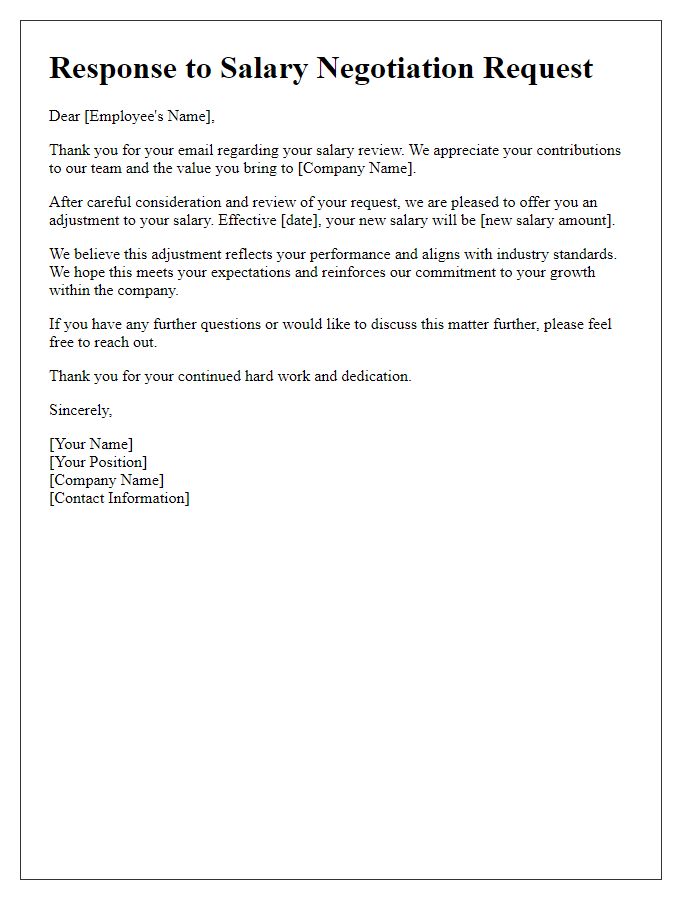
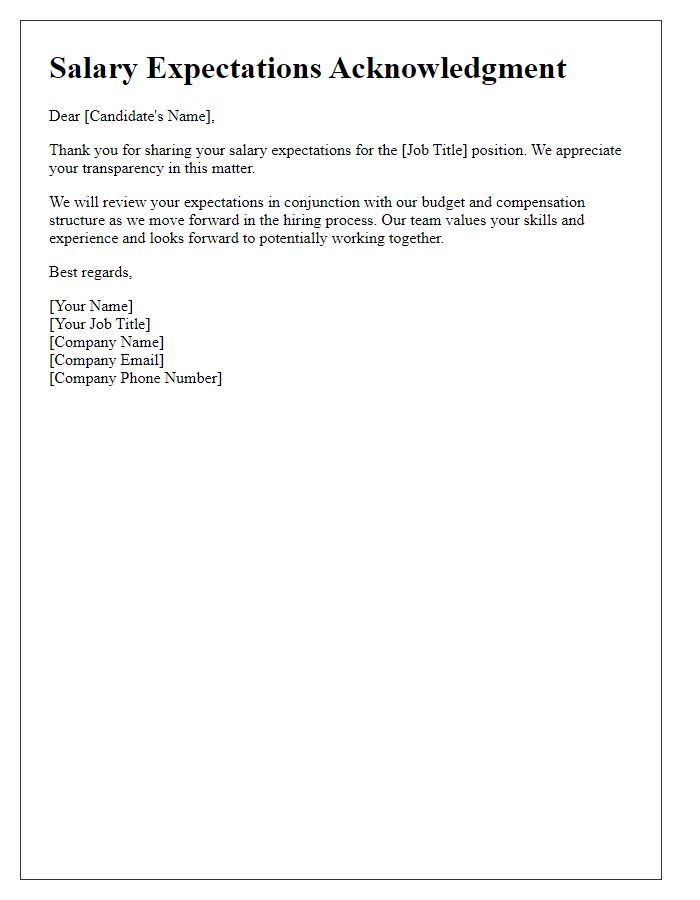
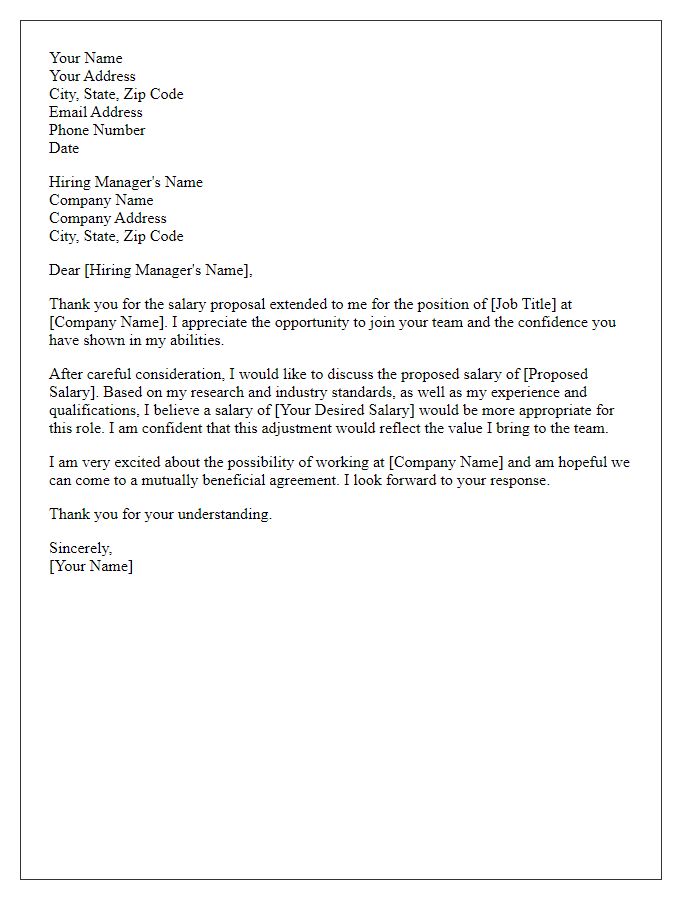
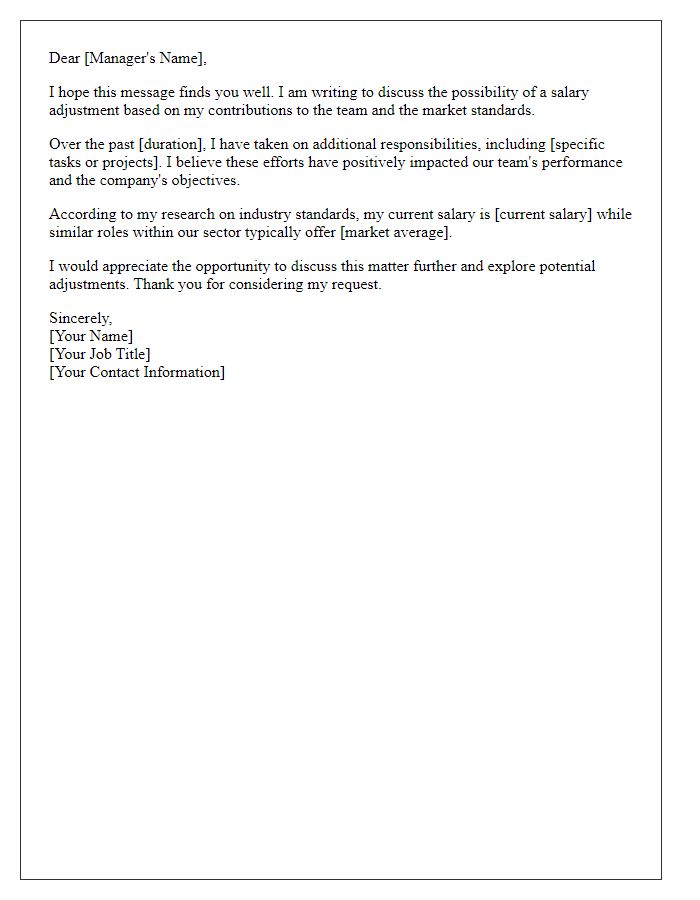
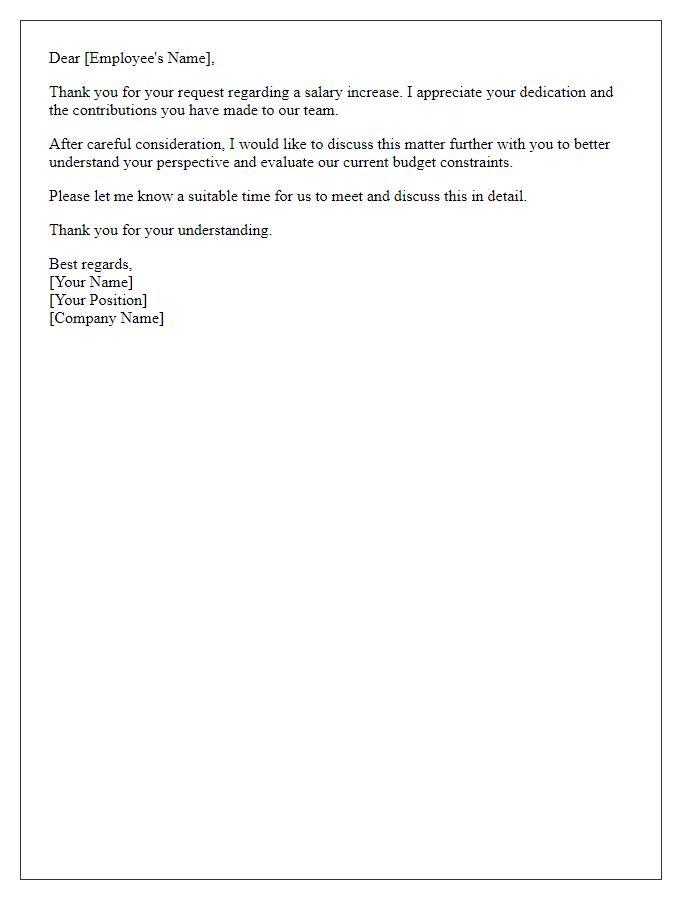
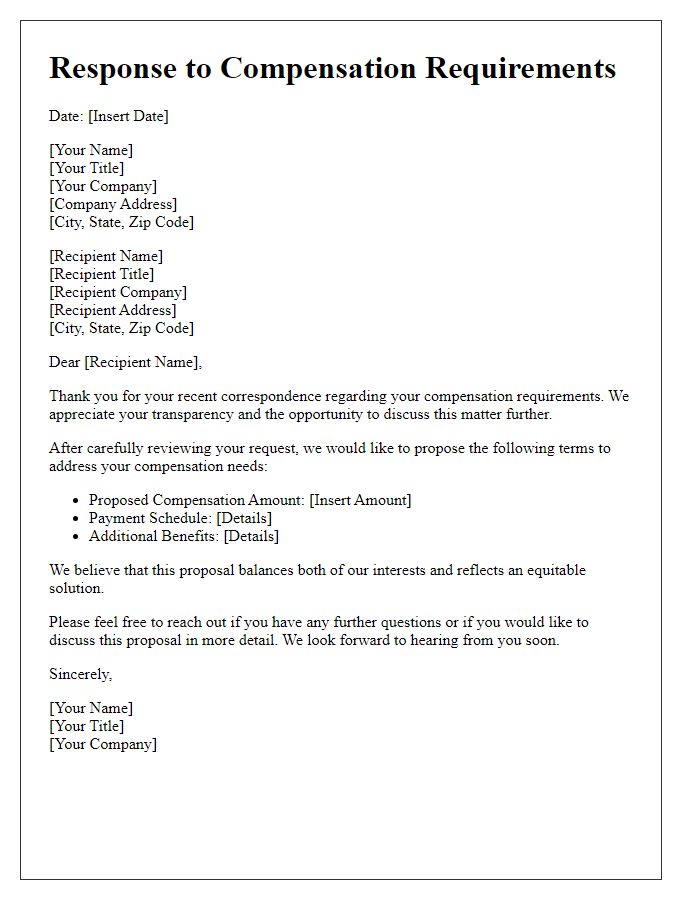
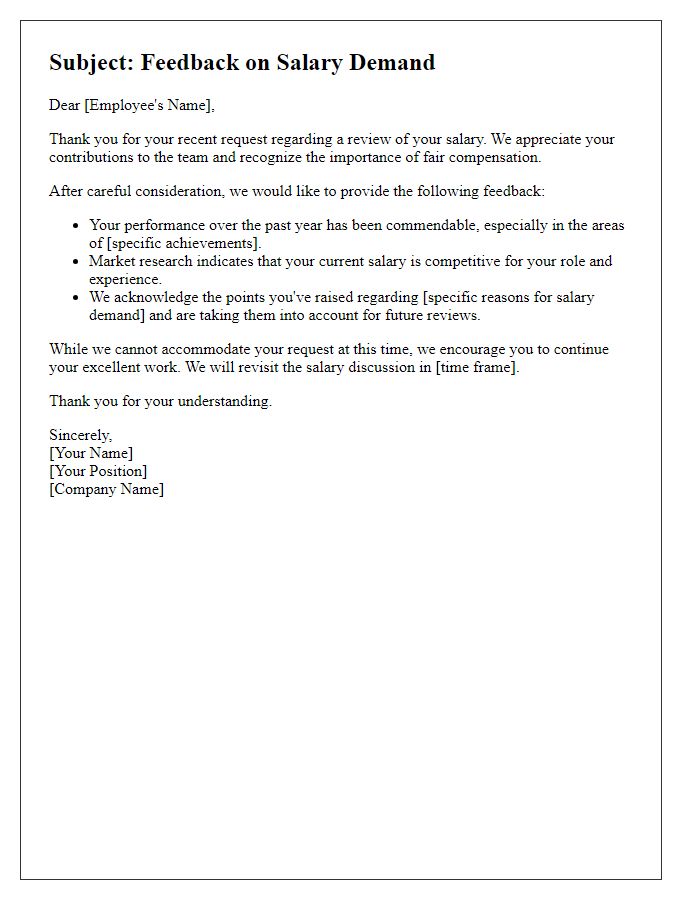
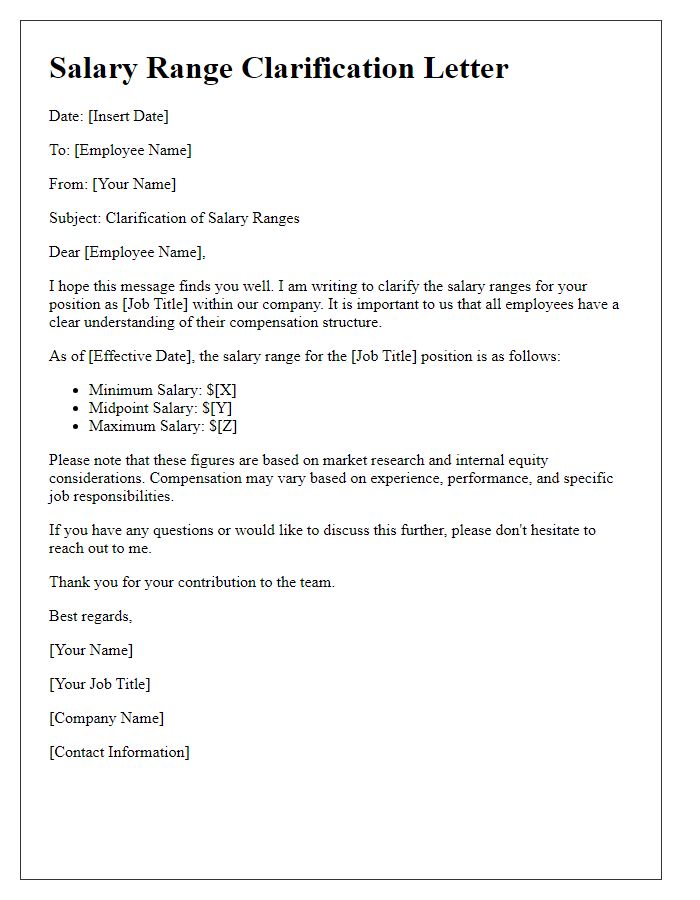

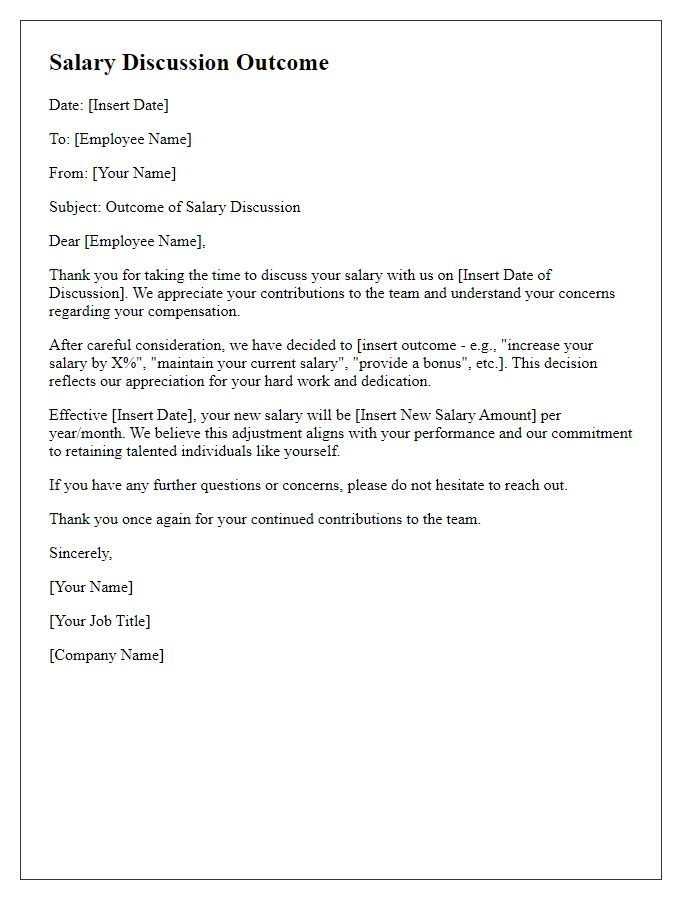


Comments